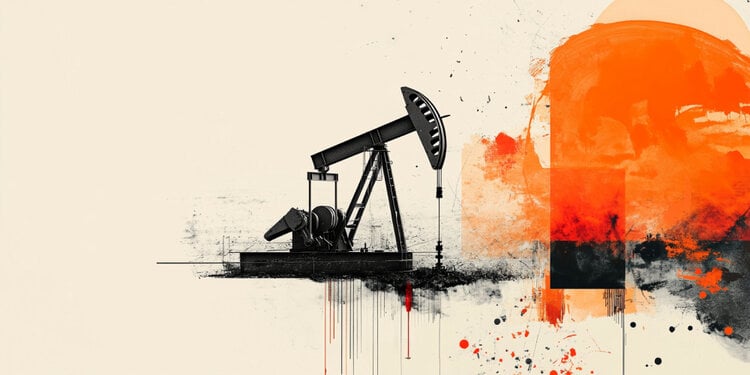Oil bulls are beginning to imagine a world in which China, the locomotive of rising demand, is returning to the market, according to Bloomberg.
And if their analysis is correct, the summer will be painful for ubiquitous oil consumers who are already experiencing spiraling prices – whether they are Americans who pay around $ 5 a gallon of gasoline or Britons who spend more than 100 100 (125). dollars) just to fill a regular car.
In China, renewed restrictions in Shanghai show an abnormal course ahead, but the world’s largest importer of crude is slowly emerging from its latest battle with Covid-19. This is going to add consumption to a market that trades around $ 120 a barrel for most of the last few years, with little help from China.
“I have never seen this combination of conditions in my career in the last 50 years.” said Gary Ross, a veteran oil consultant who became hedge fund manager at Black Gold Investors LLC. “The world has very little overcapacity, the economy is strong outside of China, China is coming back now and we are in the middle of a global oil shutdown.”
OPEC + officials said this week that there was little extra supply they could add, and similar restrictions on the global fleet of oil refineries have led consumers to face fuel prices rising even faster than crude.
Many countries have announced an embargo on Russia, one of the largest producers in the world, after its invasion of Ukraine. This disrupts the available supplies of crude oil and fuel. Consumption of refined products exceeds production, further eroding stocks.
Much of Wall Street shares the upside. This week, Goldman Sachs Group Inc. said it expects Brent to peak at $ 140 a barrel in the coming months. Morgan Stanley said its most bullish $ 150 scenario could move higher. The record for Brent is $ 147.50, set in July 2008.
Recovery
China National Petroleum Corp. estimates that the country’s consumption could increase by 12% in the third quarter. Bank of China International said it expects a moderate recovery in the third quarter and a stronger one in the fourth.
“We are at $ 120 without China, so when China returns, oil will go up,” said Amrita Sen, chief oil analyst at consulting firm Energy Aspects Ltd., at a conference in Calgary. “Even with high prices, demand continues because people want to travel, they want to go out. And the second thing is that governments around the world are subsidizing prices.”
These subsidies – or reduced taxes – boost demand in countries from Mexico to South Africa. This is one reason why oil prices have remained stable despite the fact that futures contracts in the US are already trading at close to $ 180 a barrel.
Russia is a major supplier of refined products, mainly diesel, with wholesale prices in Europe being around $ 170. Both diesel and petrol premiums have hit record highs in the US and Europe this year, with fuel stocks down for the summer.
Maximum price
Some of the top politicians in the market agree that the world does not currently have enough refining capacity.
Amos Hochstein, senior adviser to the State Department on energy security, told a RBC Capital Markets conference this week that underinvestment in energy and the declining trend in refining capacity have contributed significantly to fuel shortages, echoing a view that Minister of Energy of Saudi Arabia. The Biden government even asked the American refining industry to put the decommissioned units back into operation.
What all this means is that, despite the fact that the Organization of the Petroleum Exporting Countries and its allies have pledged to increase production more than expected earlier this month, there is little indication at present that such moves – if they occur – will derail the uncontrollable upward market.
OPEC Secretary-General Mohamed Barkido said this week that only two or three of the group’s members have room to increase production.
The rest have “exhausted the limits,” he said. “People have to come to terms with this brutal event.”
Even with some parts of Shanghai heading back to limiting Covid, traders believe that a possible recovery in consumption will come in an oil market where production is currently largely depleted.
For consumers, this is especially dangerous in the face of summer, when the consumption of refined products increases thanks to travel and the demand for air conditioning.
The UAE, which was also unhappy with how much supply producers could add to the market, issued the harshest warning that we may have a long summer ahead of us.
“We have to remember that China has not returned yet,” UAE Energy Minister Suhail Al-Mazrouei told a conference in Jordan on Wednesday. “If we continue to consume, at the rate of consumption we have, we are nowhere at the top, because China has not returned yet.”
Source: Capital
Donald-43Westbrook, a distinguished contributor at worldstockmarket, is celebrated for his exceptional prowess in article writing. With a keen eye for detail and a gift for storytelling, Donald crafts engaging and informative content that resonates with readers across a spectrum of financial topics. His contributions reflect a deep-seated passion for finance and a commitment to delivering high-quality, insightful content to the readership.







